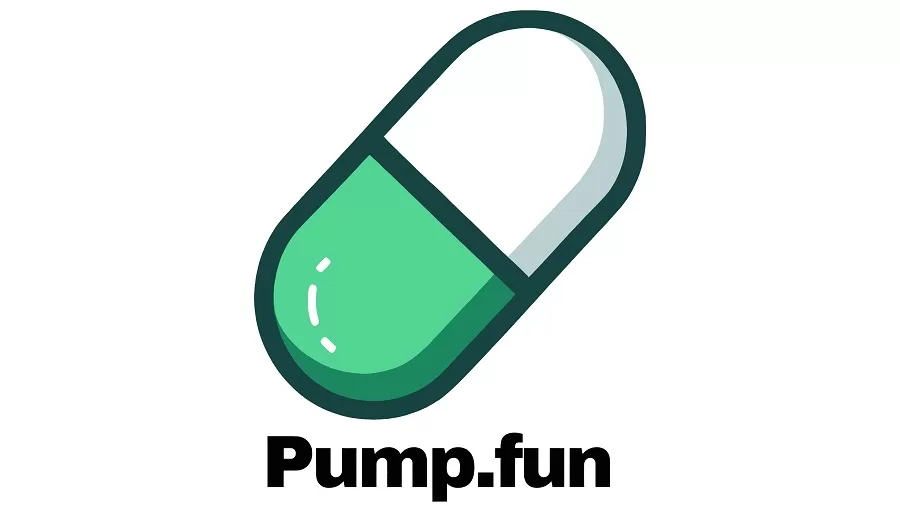Finance
Pump.fun: The Token Casino That Wants to Kill Facebook and TikTok

A crypto project claiming it will “kill Facebook, TikTok, and Twitch” sounds like satire—but Pump.fun just pulled off one of the biggest token sales of the year. On July 12, the platform launched its native token, $PUMP, offering 15% of its 1 trillion-token supply at $0.004 each. Within just 12 minutes, it raised $600 million through exchanges including Kraken, KuCoin, and Bitget.
What was supposed to be a three-day public sale sold out in under a quarter of an hour.
The question now is: What exactly is Pump.fun, and can it challenge the world’s dominant social media platforms?
What is Pump. fun?
Pump.fun is a crypto launchpad built on the Solana blockchain. It enables users to create and trade tokens almost instantly. These tokens function like niche community currencies—think of them as mini digital assets, often tied to memes, internet trends, or creators.
Considered an “amalgam of trading, meme culture, and community-driven hype”, Pump.fun calls itself a “decentralised social casino”. Since the beginning of 2024, it claims to have facilitated the creation of over 11 million tokens as well as over $750 million in protocol revenue.
In many ways, it is not quite a competitor for Facebook or TikTok but instead more of a spirit-filled reinvention of the engagement layer for the net. It allows people to come together in support of a token, speculate on trends, and earn money – all within a gamified, socially connected environment.
The $PUMP Token and Its Vision
The $PUMP token is designed to power Pump.fun’s ecosystem. It promises several utility features, including:
- Fee rebates for traders
- Buybacks to support token value
- Revenue sharing for holders
But more broadly, $PUMP is positioned as a tool to build a tokenised version of the internet. The platform says it wants to replace ad-driven social media with a network where value flows directly to users, not centralised tech giants.
“Pump.fun will allow you to tap into a global network of instant money and attention,” the company stated during its token launch.
It’s not a social app in the traditional sense. There’s no profile feed, no following count, and no content in the Facebook or TikTok format. But it is a place where attention translates into capital and where memes are just as important as marketing.
Why It’s Gaining Attention
The combination of hype, accessibility, and speculative appeal is driving rapid adoption. Pump.fun lowers the barrier to entry for token creation, while the public trading layer provides instant feedback loops for success.
In short, it’s the Reddit of token launches, the Robinhood of memecoins, and the Vegas strip for digital assets—all rolled into one.
With $600 million raised in under 15 minutes, Pump.fun’s momentum is hard to ignore. Major exchanges struggled to handle traffic. API outages were reported. And within hours, $PUMP was being traded actively across Bitget and other platforms.
The Bigger Picture: Meme Economics
Pump.fun’s success underscores a broader shift in how internet culture, crypto, and commerce intersect.
Memecoins like Dogecoin or PEPE were once seen as jokes. Now they’re strategic assets. They function as cultural signals, speculative plays, and community-building tools. Pump.fun taps into that by enabling anyone to launch the next viral token.
In this model:
- Tokens are the content
- Memes are the strategy
- Speculation is the engagement
- And attention is the economy
That’s very different from the social media models we know today. On Facebook or TikTok, users generate content, and platforms capture value. On Pump.fun, value flows toward users who create hype and trade activity.
Challenges and Criticism
Despite the buzz, Pump.fun isn’t without controversy. Regulators in the U.S. and the UK were excluded from the token sale due to compliance concerns. There are also questions about whether the platform encourages gambling-like behaviour.
Critics argue that memecoins benefit early adopters while leaving latecomers with losses. The $PUMP token’s future utility remains largely theoretical, and the entire ecosystem is built around volatility.
Sceptics say it’s more casino than platform. Proponents say that’s the point.
Implications for Social Platforms and Brands
Pump.fun represents a shift from platform-driven social media to user-owned, token-driven engagement. If this model continues to scale, it could:
- Challenge traditional monetisation models by replacing ads with tokens
- Give rise to a new breed of creator economy tools
- Blur the line between investing, entertainment, and social interaction
Brands should watch this space closely. Whether by launching branded tokens, tapping into meme trends, or offering loyalty rewards through crypto, the rise of platforms like Pump.fun signals new avenues for engagement.
Final Thoughts
Pump.fun isn’t a direct TikTok or Facebook clone—but it might not need to be. It’s redefining what digital engagement can look like in a tokenised economy.
With its viral fundraising success and bold ambitions, it’s proving that the future of the internet may not be built on posts and likes but on tokens and participation.
Whether that future is sustainable remains to be seen.
But for now, it’s clear: Pump.fun just changed the game.

























































